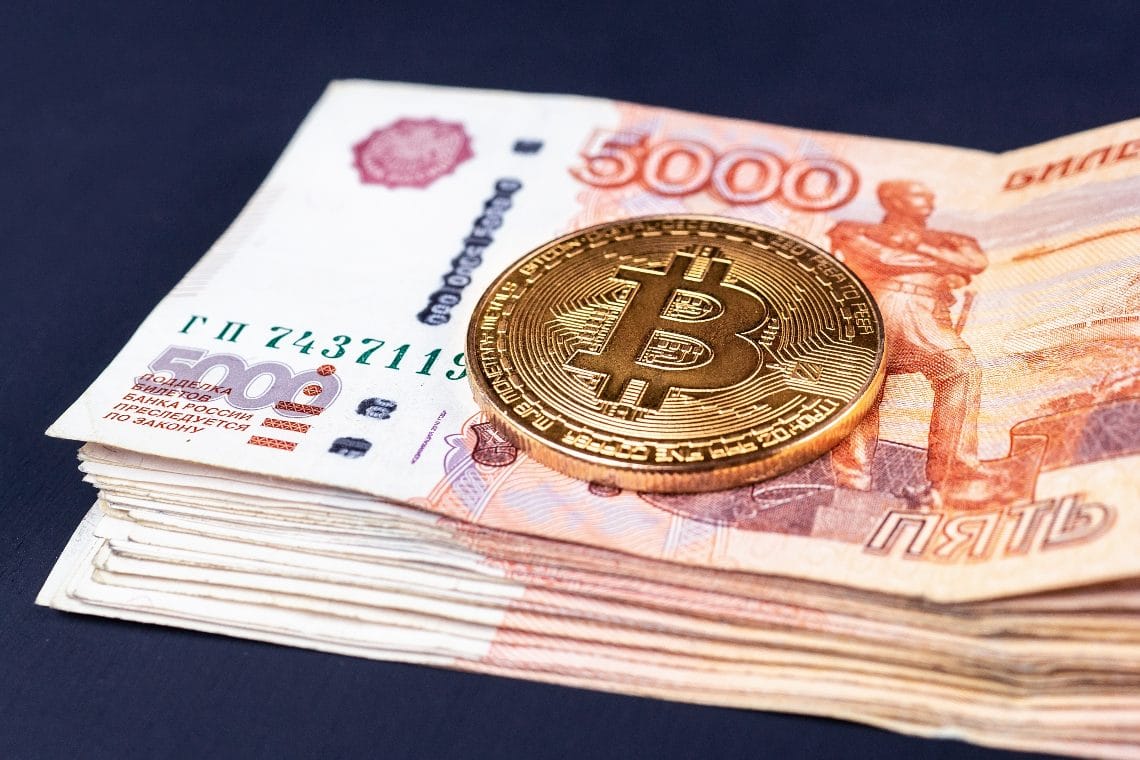The news has appeared prominently not only in the main crypto publications, but also in the national business newspapers: Ukraine has passed a law to regulate cryptocurrencies.
Someone used the expression “legalization of cryptocurrencies”. And all this is happening at a time when the Republic of El Salvador has decided to grant Bitcoin the status of legal tender.
Summary
Laws in Ukraine and crypto regulation in Russia
The parallels between the two countries have been drawn by several newspapers, at the risk of causing misunderstandings.
What happened in Ukraine has little to do with the case of the South American country. Instead, it has a number of important similarities with what happened in neighbouring Russia, just a year earlier (July 2020), when a federal law (259-FZ) was passed.
The content of the provisions of the two countries is not very different: 26 articles for the Ukrainian law, 27 for the Russian one.
In reviewing them, these two laws appear to be designed to provide a set of unambiguous definitions of the various concepts of cryptocurrencies, digital assets and wallets.
They also provide a number of powers to supervisory bodies; they indicate the transactions that financial intermediaries can legitimately carry out with cryptocurrencies and digital assets; they establish requirements and authorisation mechanisms for entities wishing to operate by offering intermediation and exchange services.
They may also impose disclosure requirements and rights on those operating in the ecosystem according to their various roles (investors, entities providing services, and the public), and establish rules and constraints for anti-money laundering purposes.

Comparison of the legislations
There are two texts of law that aim to regulate the traffic of economic values circulating by means of cryptocurrencies, trying to establish security rules and striving to leave this area of activity in the sphere of the private autonomy of the parties.
The two laws present a series of significant similarities in structure, although with understandable differences in the textual formulation of the individual provisions.
Despite the many similarities, the passing of the law in the Russian Federation did not cause the same stir as the passing of a similar measure in Ukraine.
Looking at the two measures, it is quite clear that the aim of the legislators of both countries was to channel financial activities in cryptocurrencies into a sphere in which a certain form of control can be exercised, without, however, making their use radically illegal.
As long as certain conditions are met. This leads to the system of authorizations, transparency obligations and identification of operators, which are outlined in both laws.
Legitimization and the crypto approach
This type of approach also encourages a process of bringing conventional banking operators closer to the world of cryptocurrency investments and operations, provided that all these activities and initiatives remain within the perimeter strictly outlined by the law.
Both laws contain an explicit and reassuring legitimization for banking intermediaries to operate exchanges and conversions between fiat currencies and cryptocurrencies.
It seems no coincidence then, that the Russian banking giant Sberbank, just a few months after the approval of the Russian law, announced the launch of its own cryptographic token, the Sbercoin.
In those two countries, the attempt seems to be to “tame” the kicking stallion that is the cryptocurrency market in order to bring it, duly tamed, along a sort of guided path to the pastures of traditional finance.
This is a strategic economic choice that is a far cry from what one sees as the real purpose behind El Salvador’s decision to adopt Bitcoin as legal tender in that country.
Bitcoin as Legal tender in El Salvador
El Salvador‘s decision to legally grant a specific cryptocurrency the status of legal tender has nothing crypto-anarchic about it. If anything, it is an overtly utilitarian decision.
It is true that in El Salvador, Bitcoin has become a means of payment fully equivalent to a fiat currency such as the dollar or the euro, but this implies that in the Republic of El Salvador, whoever receives a payment in Bitcoin is obliged to accept it and that that payment has a liberating effect.
And this in turn implies that once a payment has been made in Bitcoin, the related debt, by operation of law, is automatically extinguished.
However, none of this is remotely comparable, either in terms of purpose or in terms of concrete effects, to the case of the laws passed in Ukraine and, before that, in Russia.
For the moment, it is sufficient to note that the whole operation in El Salvador seems to be aimed at achieving a significant increase in national GDP.
With the adoption of Bitcoin as the legal currency of the State, there is a significant reduction in the cost of commissions on remittances from abroad of the many workers who emigrated to their families of origin.
The use of Bitcoin as a social solution
This is a very important part of the national economy and once the costs of the fees for the various transfer services are passed on to the actual recipients, all these resources will be put back into circulation in the national economy, generating an estimated increase in GDP of around 1%.
The use of Bitcoin remittances would be stimulated not only by savings on commissions, but also by the fact that the adoption of cryptocurrency as legal tender would make the conversion into dollars unnecessary.
Everything that is happening, ranging from Russia and Ukraine to the new reality of the state of El Salvador, reflects an evolutionary scenario in which a pragmatic legislator decides to find a way to put the reins on a new market, offering a certain amount of legitimacy in exchange for a certain amount of supervisory and control capacity.
Observing this phenomenon and its future developments, a jurist, be he Italian or more generally of Western Europe, can foresee the formation of possible regulatory frameworks following similar patterns.
How are major Western economies and their regulatory systems expected to evolve in the future?
Towards a model along the lines of the South American model, where a law is given a noble cypherpunk hat?
Or rather in the direction of a model that might resemble the Russian and Ukrainian ones? A model aiming at the progressive erosion of the more libertarian features of cryptocurrencies, in order to facilitate their direct process with the support of the political establishment?




